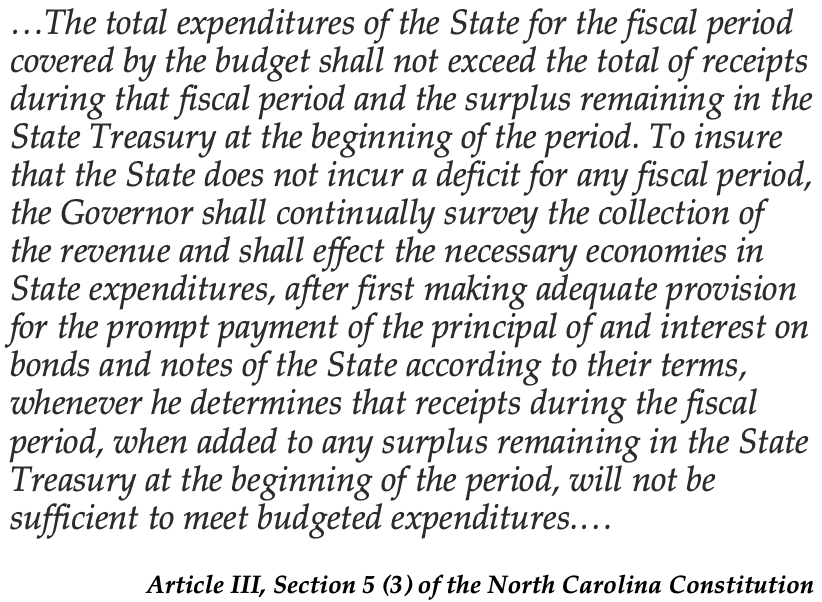Joseph Coletti, Senior Fellow at the John Locke Foundation, released a research brief this week on Gov. Roy Cooper’s latest budget proposals. While the governor’s proposals have variations, they both contain a common theme: borrowing. Coletti describes the governor’s proposals:
Gov. Roy Cooper has sought more debt and more current spending than the legislature in both of his budget proposals this year. Each time, he has argued that the General Assembly spends too little on today’s needs. In particular, Cooper tried to repeal the State Capital and Infrastructure Fund (SCIF) and instead borrow $4.2 billion for construction in his first budget proposal…
Cooper’s latest proposal would keep the SCIF but would cut it by $330 million over two years to pay current expenses and make up the difference with $3.5 billion in new debt, nearly twice as much as anything proposed by the General Assembly.
Coletti explains how this approach is less than fiscally responsible:

Moving money from a one-time capital expense to a recurring cost and backfilling it with debt commits two future dollars for the one spent today. Because they are recurring, it is many times more expensive than even this implies.
Not only is this borrowing fiscally irresponsible, but Coletti also reveals it may be unconstitutional:
Principal and interest on debt receive priority in the state constitution over every other dollar the state would spend. The constitution says the governor “shall effect the necessary economies in State expenditures” only “after first making adequate provision for the prompt payment of the principal of and interest on bonds and notes.” Borrowing money, therefore, means creating costs in the future that will either have to be paid with new taxes or reductions in other services.
According to Coletti:
Pushing costs from today into the future is exactly what the balanced budget provisions in the constitution and in statute are intended to prevent. Much of Cooper’s budget is based on an assumption of perpetual growth in state revenue, whether through a larger economy or government taking a larger slice of the economy. It just happens that his choice of more debt and more spending is also potentially unconstitutional.
Read the full brief here. Learn more about the North Carolina budget here.


